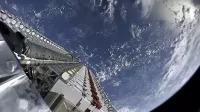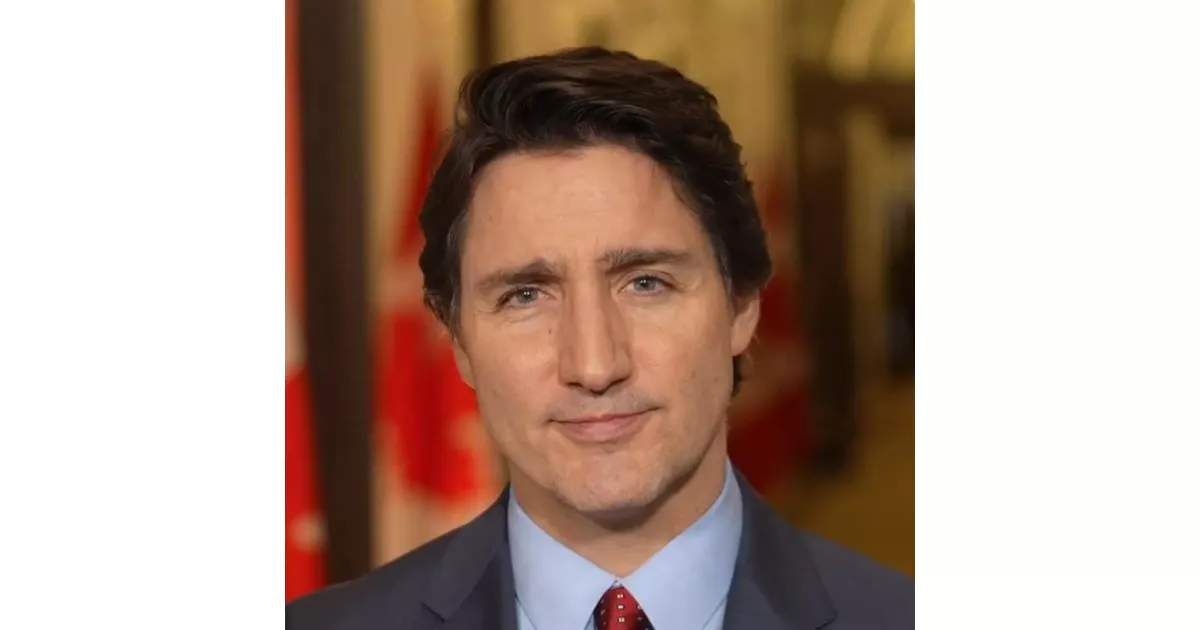A closer look at the defining struggles that shaped Justin Trudeau's life and career.
Justin Trudeau served as the 23rd Prime Minister of Canada from 2015 to 2025. He led the Liberal Party of Canada from 2013 until his resignation in 2025 and was the Member of Parliament for Papineau from 2008 until 2025. His tenure as Prime Minister was marked by various policy initiatives and challenges, shaping Canada's domestic and international landscape during this period.
1977: Parents' Separation
In 1977, Justin Trudeau's parents announced their separation when he was five years old.
August 2000: Kokanee Summit Incident
In August 2000, Justin Trudeau attended the Kokanee Summit and was accused of groping an unnamed female reporter, leading to an apology.
2002: Criticized Government of British Columbia's avalanche warning system funding decision
In 2002, Justin Trudeau criticized the Government of British Columbia's decision to discontinue funding for a public avalanche warning system. He advocated for continued support to ensure public safety during winter sports activities.
2005: Fought against proposed zinc mine near Nahanni River
In 2005, Justin Trudeau opposed a proposed $100-million zinc mine that he believed would contaminate the Nahanni River, a United Nations World Heritage Site in the Northwest Territories. He stated his concern for preserving the river's natural beauty.
November 26, 2012: By-elections held
On November 26, 2012, three by-elections were held, including one in Calgary Centre where the Liberal Party was expected to be in a three-way race with the Conservatives and Green Party.
November 2016: Criticism over Fundraising Tactics
In November 2016, Justin Trudeau faced criticism from opposition members regarding his fundraising tactics, which were seen as "cash for access" schemes. Attendees paid upwards of $1500 for access to him and other cabinet members. Trudeau defended his tactics and stated that he was not influenced at the fundraisers.
2016: Visa Requirements Lifted for Mexican Citizens
In 2016, Justin Trudeau lifted visa requirements for Mexican citizens, leading to a surge in asylum claims.
January 2017: "WelcomeToCanada" Twitter Post
In January 2017, Justin Trudeau posted on Twitter, "To those fleeing persecution, terror & war, Canadians will welcome you, regardless of your faith. Diversity is our strength #WelcomeToCanada." This led to an increase in irregular border crossings.
January 2017: Ethics Commissioner Investigation into Bahamas Vacation
In January 2017, the ethics commissioner, Mary Dawson, initiated an investigation into Justin Trudeau concerning a vacation he and his family took to Aga Khan IV's private island in the Bahamas.
December 2017: Ethics Commissioner's Report on Conflict of Interest
In December 2017, the ethics commissioner's report found that Justin Trudeau had violated four provisions of the Conflict of Interest Act, making him the first sitting prime minister to break federal conflict of interest law.
2017: Deterioration of Canada-US Relations
In 2017, after Donald Trump became president, Canada-US relations deteriorated. The Trump administration forced the renegotiation of NAFTA to create the CUSMA. Donald Trump also implemented tariffs on Canadian steel and aluminum, to which Trudeau retaliated by imposing tariffs on American steel, aluminum and a variety of other American products.
February 2018: Controversy over Invitation to Jaspal Atwal
In February 2018, Justin Trudeau's government faced criticism for inviting Khalistani nationalist Jaspal Atwal to the Canadian High Commission's dinner party in Delhi. Atwal had previously been convicted for the shooting and attempted murder of Indian Cabinet minister Malkiat Singh Sidhu in 1986.
2018: Questioned About Groping Incident
In 2018, Justin Trudeau was questioned about the groping incident that occurred in August 2000 but stated he did not remember any negative incidents.
2018: Strained Relationship with Saudi Arabia
In 2018, Saudi Arabia recalled its Canadian ambassador and froze trade with Canada after Canada called for the release of opposition blogger Raif Badawi, straining relations between the two countries.
February 8, 2019: Globe and Mail Report on SNC-Lavalin Affair
On February 8, 2019, The Globe and Mail reported that the Prime Minister's Office allegedly attempted to influence Attorney General Jody Wilson-Raybould regarding the ongoing prosecution of SNC-Lavalin.
March 19, 2019: Shut Down of Justice Committee's Investigation
On March 19, 2019, Liberal committee members voted to shut down the Justice Committee's investigation into the alleged interference in the SNC-Lavalin case.
August 14, 2019: Ethics Commissioner's Report on SNC-Lavalin Affair
On August 14, 2019, the ethics commissioner's final report concluded that Justin Trudeau contravened section 9 of the Conflict of Interest Act in regard to the SNC-Lavalin affair.
September 2019: Brownface and Blackface Scandal
In September 2019, controversial pictures and videos were published showing Justin Trudeau in brownface and blackface, leading to widespread criticism and apologies.
September 18, 2019: Publication of Brownface Photograph
On September 18, 2019, Time magazine published a photograph of Justin Trudeau wearing brownface makeup in the spring of 2001 at an Arabian Nights-themed gala, while he was a teacher at West Point Grey Academy. Trudeau apologized, acknowledging the photo was racist.
2019: Increased Weapons Sales to Saudi Arabia
In 2019, despite a moratorium on export permits, Canada doubled its weapons sales to Saudi Arabia following the killing of journalist Jamal Khashoggi and mounting civilian deaths in Yemen.
2019: Liberal Party Reduced to Minority Government
In the 2019 federal election, Trudeau's Liberal Party was reduced to a minority government.
May 12, 2020: Exclusive Deal with CanSino Biologics
On May 12, 2020, the Trudeau government announced an exclusive deal with CanSino Biologics for COVID-19 vaccines, but the deal later fell through due to deteriorating Canadian-Chinese relations.
2020: Canada's Loss in UN Security Council Bid
In 2020, Canada failed to secure a seat on the United Nations Security Council, marking the second time Canada had failed in such an attempt.
2020: Response to COVID-19 Pandemic and Nova Scotia Attacks
In 2020, Trudeau's government responded to the COVID-19 pandemic and announced an "assault-style" weapons ban in response to the Nova Scotia attacks.
August 15, 2021: Dissolution of Parliament and Scheduling of Election
On August 15, 2021, Justin Trudeau advised Governor General Mary Simon to dissolve parliament and schedule an election for September 20. The election call coincided with the Fall of Kabul, leading to criticism of Trudeau's handling of the evacuation of Canadian citizens and Afghan allies.
September 2021: Release of Meng Wanzhou, Michael Spavor and Michael Kovrig
In September 2021, Meng Wanzhou, Michael Spavor and Michael Kovrig were released at the exact same time. Many observers speculated they were exchanged as part of a deal between the United States and China. Trudeau greeted Spavor and Kovrig at the airport upon their repatriation.
September 2021: Phase Out of Federal Aid Programs
The 2021 Canadian federal budget planned to phase out federal aid programs by the end of September 2021, projecting a $354.2-billion deficit in the 2020–21 fiscal year. The CERB was phased out on September 26.
December 2021: Expansion of Canada Worker Lockdown Benefit
In December 2021, during the spread of the Omicron variant, the Canada Worker Lockdown Benefit was expanded to replace the CBR.
January 15, 2022: Introduction of Vaccine Requirements for Truckers
On January 15, 2022, the Government of Canada introduced COVID-19 vaccine requirements for truckers re-entering the country by land, leading to the Canada convoy protest.
February 14, 2022: Invocation of the Emergencies Act
On February 14, 2022, Justin Trudeau invoked the Emergencies Act for the first time since 1988 in response to the public order emergency caused by the Freedom Convoy demonstrations in Ottawa.
February 23, 2022: Revocation of Emergency Declaration
On February 23, 2022, Justin Trudeau announced that the federal government would revoke the emergency declaration, and the governor general signed a proclamation revoking it later that day.
2022: Invocation of Emergencies Act and Response to Russian Invasion of Ukraine
In 2022, Justin Trudeau invoked the Emergencies Act in response to the Freedom Convoy protests and responded to the Russian invasion of Ukraine by imposing sanctions and authorizing military aid.
February 17, 2023: Judicial Inquiry on Emergencies Act
On February 17, 2023, a judicial inquiry into the use of the Emergencies Act concluded that the Trudeau government met the legal threshold required to invoke the act.
March 2023: Closure of Roxham Road
In March 2023, Roxham Road was closed due to increased strain on services in Quebec and Ontario. The decision to close Roxham Road was also influenced by the new terms of the Canada–United States Safe Third Country Agreement (STCA) had been arranged the previous year.
May 2023: Report on Election Interference
In May 2023, David Johnston delivered a report on election interference, describing China's interference as a danger to Canadian democracy. The report also stated that some of the media reports were partially incorrect, and improvements were needed to protect members of Parliament.
September 2023: Allegations of Indian Government Involvement in Killing
In September 2023, Justin Trudeau stated that the Canadian government had "credible intelligence" indicating the Indian government's involvement in the killing of Canadian citizen Hardeep Singh Nijjar, leading to a rapid decline in Canada-India relations.
September 22, 2023: Hunka Recognition Scandal
On September 22, 2023, Yaroslav Hunka, a Ukrainian Canadian who fought in the SS Division Galicia during WWII, was invited to the House of Commons and recognized by Speaker Anthony Rota, receiving standing ovations from members of parliament, including Justin Trudeau. The incident drew widespread condemnation and was leveraged by Russia to justify its war in Ukraine. Trudeau apologized for the mistake that deeply embarrassed parliament and Canada.
2023: Increase in Asylum Claims
In 2023, asylum claims by Mexicans grew to 24,000 since visa requirements were lifted in 2016.
May 2024: Housing Market Statement
In May 2024, despite implementing measures to combat housing inflation, Trudeau asserted in an interview that "housing needs to retain its value."
May 2024: Preliminary Report on Foreign Interference
In May 2024, the Public Inquiry into Foreign Interference issued its preliminary report. The inquiry found that China engaged in foreign interference in both the 2019 and 2021 elections, but the interference did not affect the ultimate result of either election.
June 2024: Government Plans to Appeal Emergencies Act Ruling
As of June 2024, the federal government planned to appeal the ruling that the invocation of the Emergencies Act to end the 2022 convoy protest was "not justified" and infringed on Charter rights.
September 2024: NDP ends Supply and Confidence Agreement
In September 2024, the NDP withdrew its support, ending the supply and confidence agreement with the Liberal Party. The Conservative Party then made three unsuccessful no-confidence motions throughout September, October, and December, none of which gained NDP backing.
October 2024: Immigration Target Cuts
In October 2024, amidst a cost of living and housing crisis and declining approval ratings, Justin Trudeau announced cuts to immigration targets in a video message.
December 2024: Approval Rating Plummets
By December 2024, Justin Trudeau's approval rating had plummeted from 65% in 2016 to 22%, reflecting growing public dissatisfaction.
December 2024: Resignation of Chrystia Freeland
In December 2024, Deputy Prime Minister Chrystia Freeland's sudden resignation contributed to a political crisis.
December 16, 2024: Chrystia Freeland Resigns as Deputy Prime Minister and Minister of Finance
On December 16, 2024, Chrystia Freeland resigned from her roles as Deputy Prime Minister and Minister of Finance before the release of the government's economic statement. She cited a lack of confidence from Prime Minister Trudeau as the reason for her departure.
December 20, 2024: NDP Pledge of No-Confidence Motion
On December 20, 2024, NDP leader Jagmeet Singh pledged to put forward another no-confidence motion and vote out Trudeau's government.
2024: Food Bank Usage at All-Time High
In 2024, food bank usage in Canada reached an all-time high, with more working people than ever relying on them, amidst global food crises.
2024: Reinstatement of Visas and Restrictions
In 2024, visas and some restrictions for Mexican citizens were reinstated following a surge in asylum claims that began after visa requirements were lifted in 2016.
2024: NDP terminates agreement
In late 2024, the NDP opted to terminate the confidence and supply agreement with Trudeau's government.
January 2025: Deterioration of Canada-US Relations
In January 2025, Canada-US relations deteriorated again following Donald Trump's second inauguration.
March 4, 2025: Trump Imposes Tariffs on Canadian Exports and Energy
On March 4, 2025, President Trump imposed 25% tariffs on Canadian exports and 10% tariffs on Canadian energy products, with an automotive industry exemption set to expire on April 2, further straining Canada-US relations.
March 5, 2025: Canada Announces Countermeasures
On March 5, 2025, in retaliation to U.S. tariffs, Trudeau announced Canada would impose 25% tariffs on $30 billion worth of U.S. goods, with retaliatory tariffs set to increase to $155 billion within 21 days.
2025: Retaliatory Tariffs on U.S. Goods
In early 2025, in response to the second Trump tariffs, Justin Trudeau announced 25% retaliatory tariffs on $30 billion worth of U.S. goods.
Mentioned in this timeline

Joe Biden is an American politician who served as the...
Saudi Arabia officially the Kingdom of Saudi Arabia KSA is...
Nova Scotia is a province in the Maritimes region of...
Pfizer Inc is a multinational pharmaceutical and biotechnology corporation headquartered...
India officially the Republic of India is a South Asian...
China officially the People's Republic of China is an East...
Trending
23 minutes ago Tim NeCastro Announces Retirement as Erie Insurance CEO After 10 Years

2 hours ago Apple MacBook Pro: Touchscreen, Dynamic Island, and New Interface Coming Soon.

2 hours ago Microsoft and SpaceX Starlink Partner to Empower Global Community Internet and AI Economy
24 minutes ago Trump Announces Energy Deals and Rate Payer Protection Pledges at SOTU
2 hours ago Whitefox & Fluid Quip collaborate; Low-carbon ethanol boosted; Indoor plants aid climate resilience.

1 hour ago Ethereum Price Faces Resistance at $1,950 Amidst Market Repricing Concerns.
Popular

Jesse Jackson is an American civil rights activist politician and...

Susan Rice is an American diplomat and public official prominent...

Barack Obama the th U S President - was the...

Michael Joseph Jackson the King of Pop was a highly...

XXXTentacion born Jahseh Dwayne Ricardo Onfroy was a controversial yet...

Bernie Sanders is a prominent American politician currently serving as...
